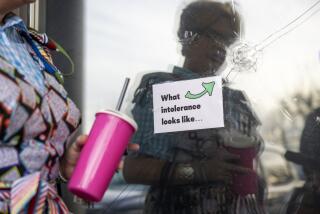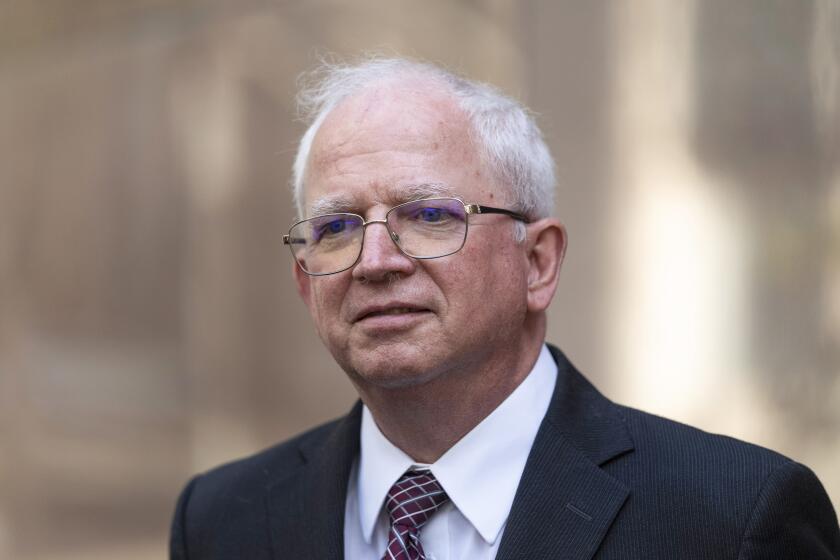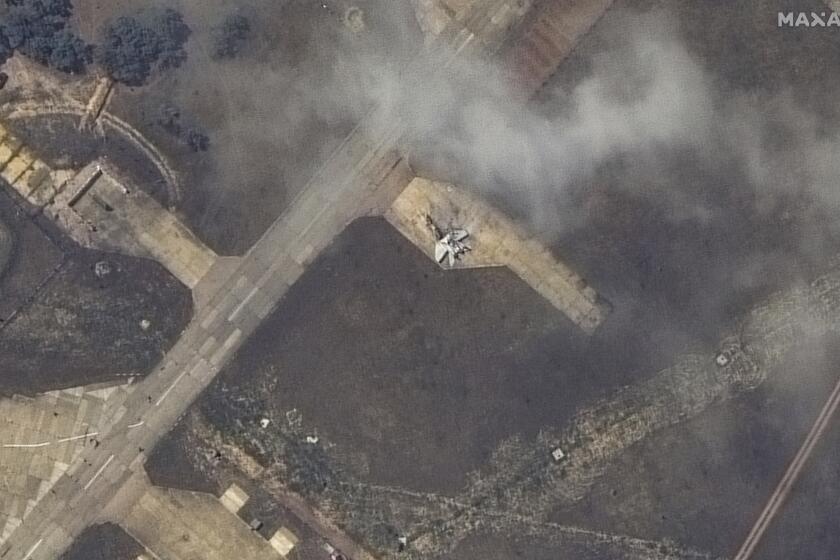Congress Rethinks Screening Deadline
Stunned by a tripling in airport security costs, senior members of Congress on Wednesday urged reconsideration of their own year-end deadline for checking all bags for bombs.
“Does the agency really take this committee to be a bunch of chumps, or do you simply expect we are going to supinely provide blank checks?” fumed Rep. David R. Obey (D-Wis.), questioning Transportation Department witnesses during a contentious hearing.
The exchange before a House panel that controls transportation spending could mark a turning point in congressional support for post-Sept. 11 security spending. The committee also heard criticism of potentially wasteful practices and allegations of abuse of authority by the new Transportation Security Administration, which in February took over responsibility for security at the nation’s airports.
Official Recommends Using Part-Time Help
The Transportation Department’s inspector general testified that the new agency could save millions by using more part-time airport screeners instead of relying chiefly on full-time workers. And local airport officials complained that TSA has threatened to suspend air service to communities that balk at using their own money for some federally mandated security costs.
TSA’s budget estimate for this year has ballooned from $2.4 billion a few months ago to $6.8 billion. Much of that is because of projections that the agency will need as many as 72,000 new security employees, more than double the original estimate of 30,000.
Most of the additional workers would be required to meet the Dec. 31 congressional deadline for screening all checked bags using explosive-detection technology. Checked baggage on domestic flights long has been considered an easy target for terrorists. Congress wrote the deadline into law because the Transportation Department is notoriously slow in fulfilling its mandates.
“If these deadlines are causing us to spend zillions, when if we waited a couple of months it could be done for half that, then that’s worth talking about,” said Rep. Harold Rogers (R-Ky.), chairman of the House transportation appropriations subcommittee. Lawmakers said they were misinformed about the costs when they voted in November to create the agency.
“Why, it’s ridiculous,” Rogers said. “We’re not going to fund 72,000 people.”
“The American people want to do it right, rather than quickly,” said Rep. Carolyn C. Kilpatrick (D-Mich.). “We still have to fund education, health care, housing and all the other priorities.”
Deputy Transportation Secretary Michael Jackson used such terms as “crushing” and “a forced march” to describe the deadline but said the Bush administration intends to fulfill the congressional mandate.
“Until otherwise instructed, this is one group of people who intend to do the job,” Jackson said.
The new security agency promises to be bigger than the Federal Aviation Administration or the Coast Guard. It will have more employees than the FBI, Drug Enforcement Administration and Border Patrol combined.
Inspector General Kenneth Mead testified that meeting the deadline won’t necessarily ensure the best system for detecting explosives in checked baggage. “Do we blink on this Dec. 31 date together? Who blinks first?”
At the root of the problem is a choice about technology.
Currently, there are two types of systems for detecting explosives. The most advanced employs truck-size machines that cost $1 million each and scan the insides of bags. The alternative is much less expensive, costing about $45,000 per machine. But it can involve opening each bag and taking a swab of the contents, a time-consuming process that requires at least twice as many workers.
Travelers already can see both systems at major airports. The less-expensive system is used to check for explosives in shoes. It is known as Trace, because it checks for volatile explosive residue. The more expensive system uses CT scan technology--computed tomography--akin to that employed by hospitals in diagnosing tumors.
Not enough CT machines can be built to cover all 429 commercial airports by Dec. 31, so planners are considering a combination of CT and Trace systems. Because Trace is only 50% effective when used to check a closed bag, industry and government officials say screeners will have to open a large sample of bags to assure confidence in the system.
Texas Airport Can’t Guarantee Compliance
Jackson promised a decision soon on the final combination of CT and Trace, but at least one major airport is unlikely to meet the deadline. Jeffrey Fegan, chief executive of Dallas-Fort Worth International Airport, testified that he cannot guarantee that the systems can be installed in time because the Transportation Department has taken too long to decide. The airport had offered to raise $193 million to cover the cost, but it needed a decision from Washington this week.
Other local officials complained of bureaucratic bullying by the new federal security agency.
James Koslosky, airport director in Grand Rapids, Mich., said TSA had threatened to suspend flights to a number of smaller airports unless local governments paid for police officers to replace National Guard troops at passenger checkpoints. “They just need to recognize that we’re not the enemy,” Koslosky said of TSA.
Rogers warned the administration that Congress “will not tolerate dictatorial attitudes at TSA.”
But Jackson said he already had put a stop to such threats. “The idea that we could stop flights is ludicrous--it’s not going to happen.”
Mead said TSA is not paying enough attention to its bottom line. The agency will run out of money next month unless Congress approves a $4.4-billion emergency funding request. Mead said TSA has just two clerks to handle $250 million a month in bills from its contractors, and the employees have no way to vouch for the accuracy of the accounts. And he questioned why the agency plans to pay federal police officers who eventually will be assigned to passenger checkpoints on the same scale as FBI agents.
More to Read
Start your day right
Sign up for Essential California for news, features and recommendations from the L.A. Times and beyond in your inbox six days a week.
You may occasionally receive promotional content from the Los Angeles Times.






